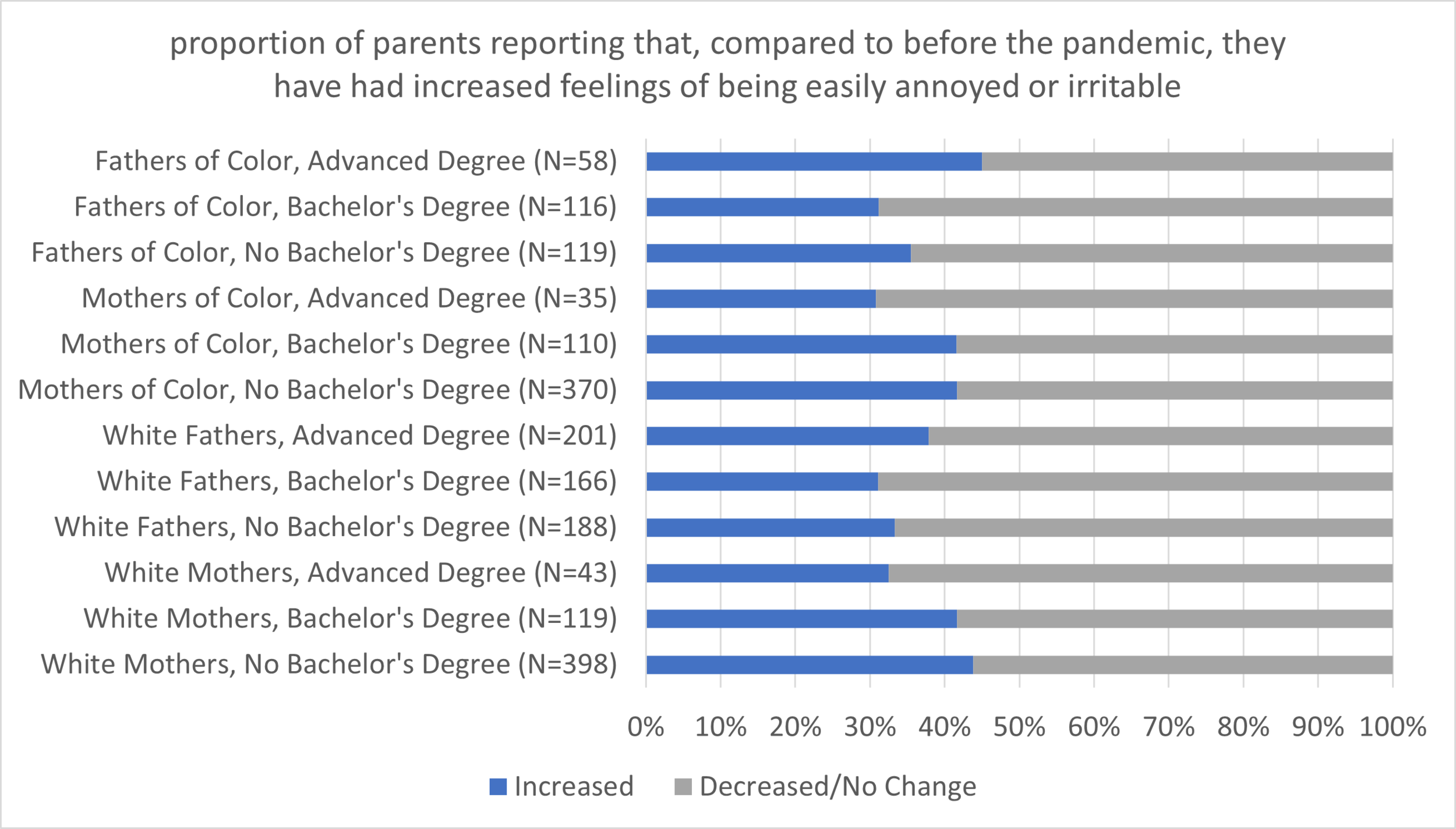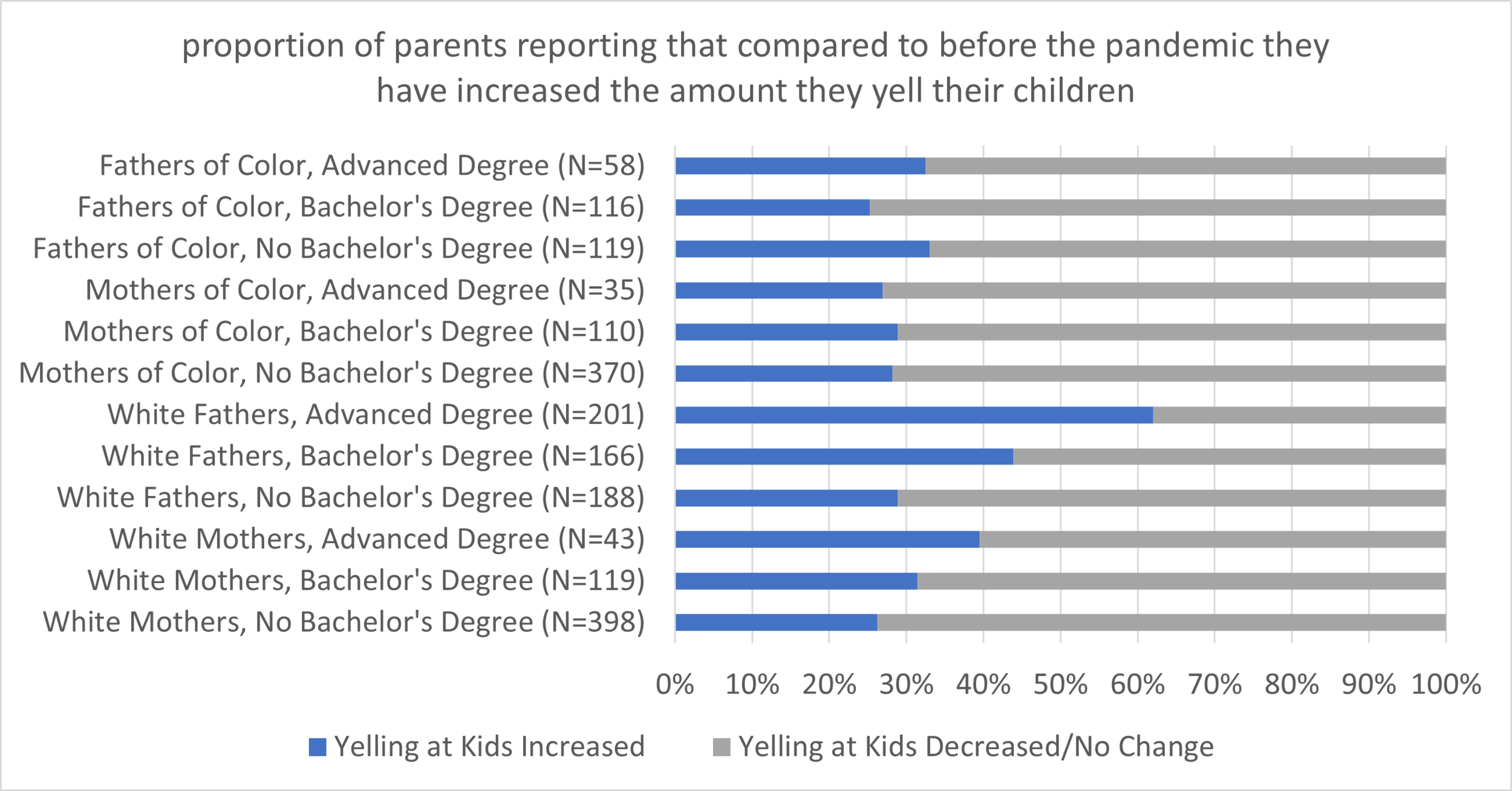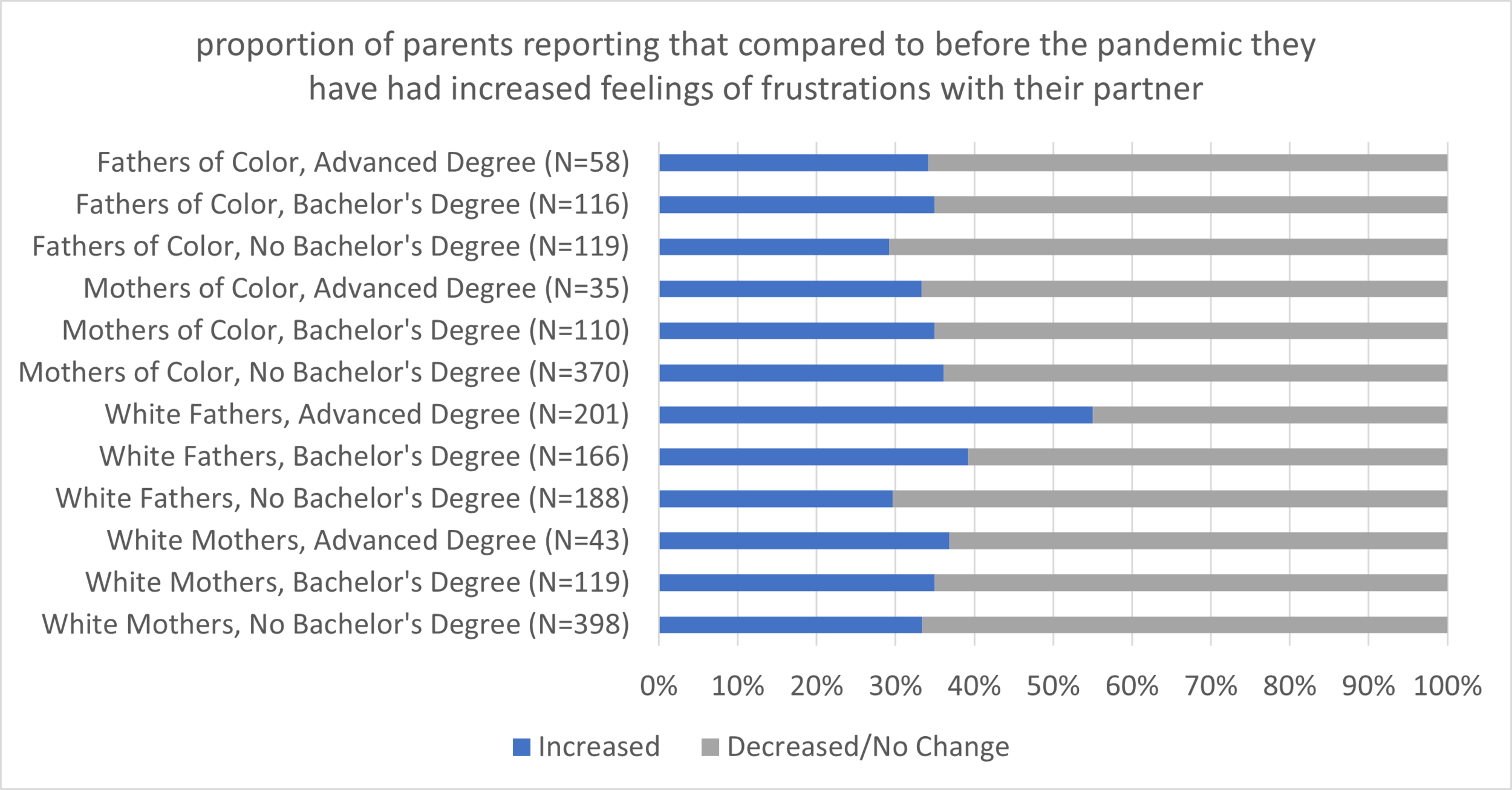the hard toll of pandemic parenting
After a year cooped up with their kids, parents - or at least many parents - are struggling. In my interviews with parents of young children, they talk about being exhausted, about feeling like failures as parents and in their paid work roles. They talk about depression and anxiety and about being so on edge all the time that they’re frequently yelling at their partners or their kids.
And those stresses don’t just show up in the qualitative data. They can be seen in the quantitative, as well. Here, I’ll share some basic descriptive data from an online survey I ran in December 2020 with a sample of about 2,000 U.S. parents. Participants were recruited through the Ipsos iSay panel and received points for their participation. The data are weighted to be representative of parents with children under 18.
exhaustion
First up, let’s look at exhaustion. Because if there’s one thing I’ve heard most in interviewing parents (especially moms), it’s how darn tired they are. And that’s certainly what the quantitative data show. 66% of all parents reported that, compared to before the pandemic, they’re more often feeling tired or having little energy. Those feelings, in turn, are significantly more common (p<.001) among mothers (91%) than among fathers (35%).
depression
Next, let’s look at parents’ reports of whether, compared to before the pandemic, they’re more often feeling down, depressed, or hopeless. Here, we see that 41% of all parents report increases, with those increases being roughly equally likely among moms (39%) and dads (43%).
anxiety
Many parents also report that, compared to before the pandemic, they’re more often feeling nervous, anxious, or on edge. That includes 43% of parents overall and roughly equal numbers of mothers (43%) and fathers (42%).
trouble concentrating
Trouble concentrating has also been a problem for many parents, with 31% of parents reporting that they’re experiencing these problems more now than before the pandemic. Mothers and fathers are roughly equally likely to report increased trouble concentrating (33% and 30%).
irritability
More than a third of parents (38%) reported that, compared to before the pandemic, they more often feel irritable or easily annoyed. Those feelings are significantly more common (p<.001) among mothers (42%) than among fathers (35%).
frustrations with children
The pandemic is also taking on toll on parents’ relationships, with some of their increased irritability directed at children. More than a third of parents (37%) report that, compared to before the pandemic, they’re more often feeling frustrated with their kids. Those increased frustrations are significantly (p<.001) more common among fathers (42%) than among mothers (33%).
Among white mothers, those with advanced degrees were significantly more likely (p<.05) than those with bachelor’s degrees and those without bachelor’s degrees to report increased frustrations with their children (49% vs. 31% and 31%).
Similarly, among white fathers, those with advanced degrees were significantly more likely (p<.001) than those with bachelor’s degrees and those without bachelor’s degrees to report increased frustrations with their children (62% vs. 44% and 29%).
yelling at kids
Those increased frustrations are also affecting interactions with their kids, with about a third of parents reporting that, compared to the pandemic, they’re more often yelling at their kids (33%). Fathers are also significantly (p<.001) more likely than mothers to report that their yelling has increased during the pandemic (39% vs. 28%).
As with frustrations with children, white parents with advanced degrees are significantly more likely than those with bachelor’s degrees and those without bachelor’s degrees to report that they’re more often yelling at their kids.
frustrations with partners/co-parents
The pandemic isn’t just taking a toll on parents’ relationships with their children. It’s also taking a toll on their relationships with their children’s other parents, whether they’re in a relationship or not. When asked about their interactions with their children’s other parent, more than a third report increased frustrations during the pandemic (36%). Mothers and fathers are roughly equally likely to report increased frustrations with their children’s other parent (35% and 38%).
fights with partners/co-parents
For some parents, those increased frustrations are giving way to more frequent physical or verbal fights with their children’s other parent. More than a quarter of parents (28%) report that, compared to before the pandemic, they’re experiencing increased physical or verbal fights with their children’s other parent. Fathers are significantly more likely (p<.001) than mothers to report increased fights (33% vs. 23%).









